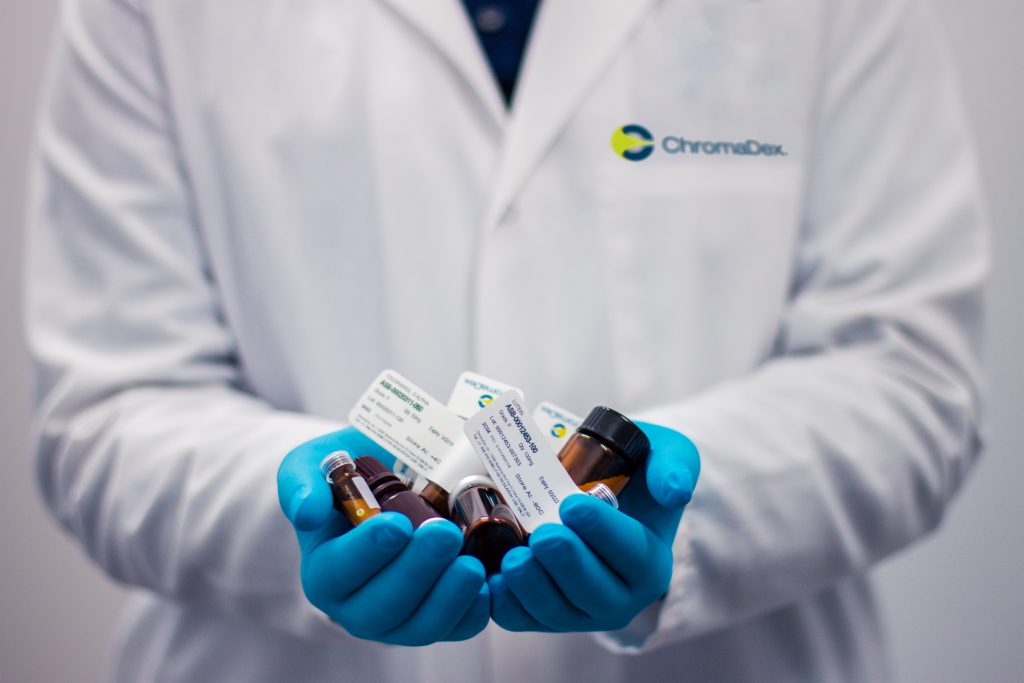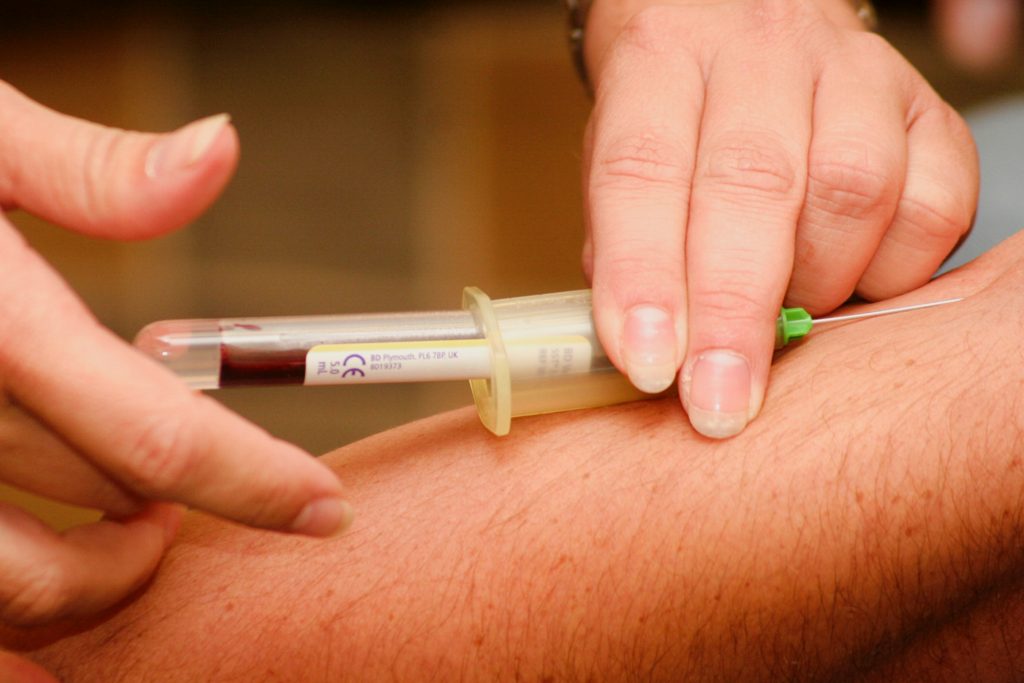China hopes to provide affordable basic health care to all its citizens by 2020. It is a grand ambition. But now that the private sector has joined public initiatives, the country is starting to see medical care efficiencies thanks to blockchain implementation. Chinese web giants Baidu, Alibaba and Tencent have been working separately for the last two years on blockchain-based solutions to boost the efficiency of the country’s medical infrastructure while keeping patients’ data secure.
Baidu, China’s biggest search engine provider, launched a blockchain medical solution in September 2019 to securely distribute and share medical data. The open-source platform, called XuperChain, aims to store health records, diagnoses, treatments and prescriptions. Once fully functional, XuperChain will not only serve as a place to store medical data but also facilitate the processing of insurance claims when it moves from a small regional pilot to a nationwide rollout. The blockchain solution, initially launched in Chongqing’s Yuzhong District in collaboration with the local government, is set to roll out nationwide over the next few years.

Alibaba was the first in China to launch a medical application of blockchain in 2017. The e-commerce giant formed its own online health service, Alibaba Health Information Technology Ltd., in conjunction with Alipay. The solution is offered as part of Alibaba’s cloud software stack. In 2018, the company partnered with Changzou City’s local government to improve healthcare services and establish a trusted environment for medical transactions. Zhang Zhinhong, director of the Zhenglu Town Health Center in Changzou, said Ali Health’s blockchain technology “connects information by using our current equipment and systems.” In other words, integrating blockchain with the health center’s existing operations should be seamless and cost efficient.
Tencent is collaborating with Waterdrop, a crowdfunded health insurance firm, to develop a medical and insurance solution leveraging blockchain technology. Tencent plans to integrate the solution into its WeChat messenger, which means more than 1 billion Chinese users who actively use the platform each month can access medical bills efficiently and securely. The solution will also benefit medical institutions and insurance firms by facilitating an efficient billing system as well as a platform for secure, auditable storage of medical information to prevent claims from fraudulent invoices.
Applications Aim To Improve Access, Efficiency
Blockchain offerings from the three Chinese web giants address the different pain points in the domestic medical sector, namely around medical service access and efficiency. These solutions are gradually being applied in different provinces around the country.
To illustrate, Huadu District People’s Hospital has opened the first in-house blockchain electronic bill in Guangdong Province. This resulted in more convenient health care service and a cost-effective medical insurance reimbursement process. While reading an electronic bill on his phone, a patient surnamed Wang at Huadu District People’s Hospital in Guangzhou said, “I don’t have to worry about losing the invoice in the future. Now I can use the mobile phone to scan a QR code to open an electronic invoice, and the reimbursement is more convenient!”

Moreover, there are simple but surprising uses of blockchain that revealed healthcare and pharmaceutical fraud.
A 2018 news article about Chuangchun Changsheng, the largest vaccine producer in China, revealed how it profited from selling defective products. However, the original article and reposted articles containing the same revelation later disappeared from the internet, hinting at a cover-up. But the information was later posted to the Ethereum blockchain, which made it public and virtually impossible to delete.
Aside from promoting efficiency in medical services, blockchain is also being used to enhance drug safety by preserving the integrity of products within the drug supply chain, making the information public, accessible and secure. IBM and Chinese supply chain management firm Hejia did just that when they launched the Yijian Blockchain Technology Application System in 2017. Aside from enabling drug tracking and transparency, it also was a cost-efficient solution to the previously paper-intensive process.
See related article: Giving patients power over data builds trust in health care, says Blockdoc’s Alan Chiu
A New Model For Handling Medical Data
Consulting giant Deloitte says blockchain technology can provide a new model for health information exchanges (HIE) by making the creation and access of medical records more efficient and secure. “A blockchain-powered health information exchange could unlock the true value of interoperability while reducing or eliminating the friction and costs of current intermediaries.”
PwC, another global consulting firm, said, “Not all companies will benefit. Companies that are slow to change may lose out to ones that use the technology to cut costs and increase efficiencies.”
As companies worldwide come up with blockchain-powered innovations for the medical sector, the challenge now for China is to set the global standard for transparent, high-quality, affordable health care.

China’s healthcare sector has many challenges that blockchain alone cannot solve, such as inconsistent quality, unequal access, overcrowding and an aging population that will strain the system down the road. There are also a number of privacy concerns over the treatment of patient data. While China has strong laws on the protection of healthcare data, concerns about mashing medical data with the troves of data China’s tech giants have on their users has shaken the public’s confidence and made data sanitation a critical issue.
Applying a blockchain layer to healthcare data management in China — at a scale only China can pull off — would be an impressive feat. But the country would need to solve many other serious problems lingering in the sector before its healthcare industry would be regarded at G7 standards.
Can Blockchain Secure Sensitive Health Data?
The most important part of the healthcare sector is data. To create a treatment plan for a condition, health care practitioners must have pertinent data points such as the patient’s history, medications and allergies. A patient may not be able to remember all of this information, or they might be incapacitated, so it is important to store the data where the treatment team can retrieve it.
In parallel is the issue of drug traceability; drugs have a complex supply chain, and along with a treatment history, there needs to be a record of where each drug was sourced.
However, two problems emerge: centralization and data security. People are mobile by nature, so the data must be accessible wherever they are. Secondly, given the sensitive nature of this data, it must encrypted and secured. These challenges play to two of blockchain technology’s key strengths: interoperability and security.

Solving Health Care’s Pain Points
The healthcare system is becoming more patient-centric, with a focus on making services more affordable and accessible. However, delivering and maintaining high-quality medical services also requires compliance to lengthy regulatory processes and requirements. The integration of blockchain can not only provide efficient and secure storage of medical information, but also address the pains of the regulatory process by providing a transparent, simplified compliance system that is secure and conveniently accessible to regulators and stakeholders.
Furthermore, blockchain implementation can allow the entire medical supply chain — consisting of pharmaceutical manufacturers, packagers, distributors, wholesalers, dispensers and regulators — to seamlessly, securely share information in real time. Each stakeholder in the supply chain will be in control of one or several nodes. Each time a transaction is entered within the supply chain network, the same data is recorded and validated by each node in the blockchain. The result is a simplified method of transferring data and allowing product recipients to validate its genuineness and quality with greater certainty, as well as more efficient transaction reconciliation.
Blockchain also significantly improves the precision of data from clinical trials. Clinical trials produce huge volumes of information related to safety and quality reports, statistics, blood tests, surveys and medical imagery that involve several stakeholders, which makes information tracking and control difficult and susceptible to mistakes and fraud. With blockchain, the authenticity of information can be maintained and verified by the majority of nodes within the clinical trial blockchain network. It will also make it difficult for existing information to be modified without changing the records of the majority of computers on the network.
This article is part of Forkast.Insights’ China Blockchain Report.




